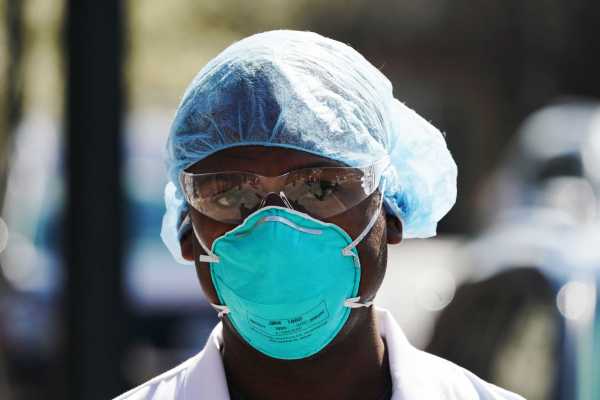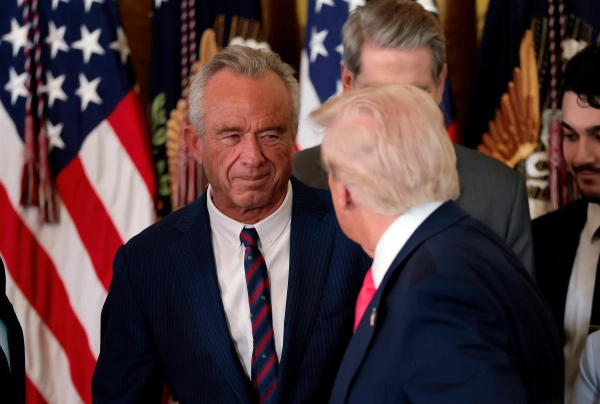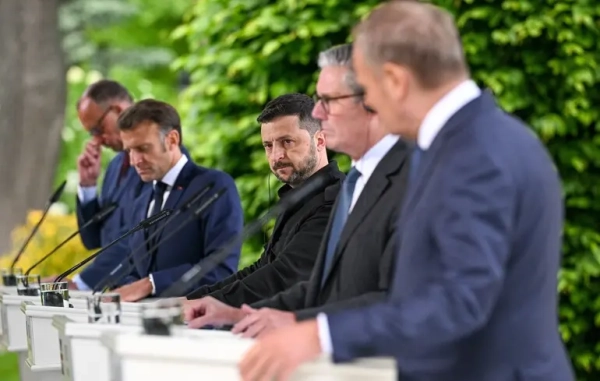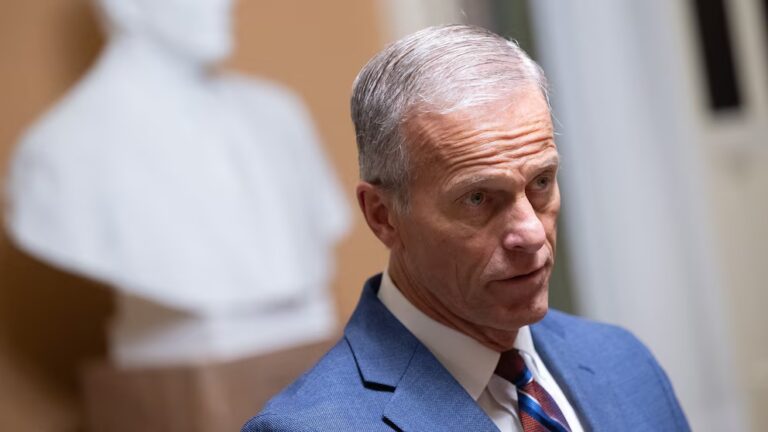
On Friday, President Donald Trump once again invoked the Defense Production Act (DPA) — which allows the federal government to dictate the production and delivery schedules of private companies — in order to prevent the export of protective medical gear overseas amid a deepening coronavirus pandemic.
In a statement, the White House announced that Friday’s use of the law was intended to prevent “wartime profiteering” and the hoarding of personal protection equipment (PPE), such as gowns, gloves, and N95 masks — a respirator considered an especially critical defense against the spread of the novel coronavirus — in order to resell them overseas.
“Unfortunately, the outbreak of the virus has led to wartime profiteering by unscrupulous brokers, distributors, and other intermediaries operating in secondary markets,” read the White House’s statement. “This wartime profiteering is leading to hoarding and soaring prices for Personal Protective Equipment (PPE) like masks, gloves, and N-95 respirators, all of which are needed to protect American citizens, including our heroic healthcare professionals, battling on the front lines.”
But American manufacturing company 3M, one of the few US-based manufacturers of N95 masks, has previously said that attempts to keep PPE — which is in short supply globally — in the US could have the opposite effect, depressing trade of such equipment among allied countries and leading to punitive measures by other nations’ governments.
As instances of Covid-19 have increased in the United States — with nearly 300,000 cases confirmed across the country as of April 4 — hospitals have run low on critical equipment, with some medical workers resorting to using garbage bags as gowns and scarves as masks, or reusing equipment for days at a time.
Friday’s order was intended to prevent people from taking advantage of this situation to hoard equipment in order to artificially generate demand, before selling it at high prices both in the US and abroad. And the Trump administration said the move will not affect manufacturers exporting goods, with the president telling reporters on Friday that “long-term orders” will still be permitted to go to countries where the novel coronavirus poses a serious problem.
“If they have long-term orders and they’re in there and they want to get certain things, I’ve let them go out, in certain instances, because I think it’s only fair,” he told reporters. “They have problems that are proportionately or relatively bigger than our problems.”
A global supply chain and need for international cooperation has 3M and others warning the new order could backfire
As Rebecca Heilweil has written for Vox’s Recode, N95 masks — so named because they filter 95 percent of airborne particles — are seen as a critical defense against the spread of the novel coronavirus, but have been in short supply as the virus has spread.
In the face of such a shortage, the DPA has become something of a political catch-all: Democratic presidential contenders Joe Biden and Bernie Sanders have both called on the Trump administration to leverage the act in order to shore up stressed PPE supplies, while Trump had previously threatened to use it in order to pressure companies to keep medical equipment stateside.
But companies and foreign leaders alike have suggested that poor application of the DPA might mean fewer, not more, masks for the American public — at a time when the Department of Health and Human Services estimates the US will need 3.5 billion masks to address the pandemic.
In a statement, 3M said it had already been working to prioritize orders placed by the federal government and to increase the number of masks imported from its overseas factories, when the Trump administration used the DPA to direct it to ramp up production of respirators and ventilators Thursday.
The company said the White House had also requested that it stop exporting masks to Canada and Latin America, which 3M argued would have both “humanitarian implications” for health care workers in those countries, and possibly cause retaliatory measures against the US.
“Ceasing all export of respirators produced in the United States would likely cause other countries to retaliate and do the same, as some have already done,” the company wrote in its statement. “If that were to occur, the net number of respirators being made available to the United States would actually decrease. That is the opposite of what we and the Administration, on behalf of the American people, both seek.”
Justin Trudeau, the Canadian prime minister, also suggested that the implementation of this act would cause “blockages” in the exchange of medical supplies needed to fight the global pandemic.
“These are things that Americans rely on, and it would be a mistake to create blockages or reduce the amount of back-and-forth trade of essential goods and services, including medical goods, across our border,” Trudeau said.
The shortage of critical medical equipment, Heilweil argues, points to “a supply chain that’s been riddled with mismanagement and misinformation.” That’s not something that’s necessarily solved by firm executive action. Masks are difficult to manufacture, stockpiled by individuals and municipalities, and caught up in a global supply chain that is — like every other facet of the world’s economy — hindered by the very virus masks are designed to protect against.
As a result, it seems that international cooperation, not antagonism, will be required to ensure that affected countries, including the US, get the equipment they need to fight a pandemic that has not yet reached its apex.
Sourse: vox.com






